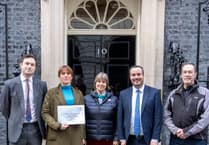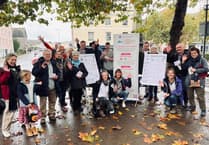Whereas there used to be a belief that depression was caused solely by an imbalance of chemicals in the brain, it is now widely accepted that the reality is in fact far more complex and that several factors are at play, writes psychotherapist and Positive Mental Health columnist Jody Merelle. One significant risk factor in terms of low mood and depression is the increasing sense of isolation felt by many people these days.
As human beings we are genetically programmed to be social animals and to connect with others. However the western tendency of living life in an individualistic way means that we are often more cut off from society than we ever have been. Evidence shows that having healthy connections with other people is a central factor in maintaining a positive sense of wellbeing.
Despite this though, much of the debate on depression, mental health and wellbeing still focuses on how we can help ourselves rather than how we can work together collectively to make a difference.
The longer I work in the field of wellbeing, the more I am convinced that one of the best things we can do to maintain a sense of positive mental health is to make meaningful connections with other people. It is also cited as one of the NHS’s five steps to mental wellbeing. When you ‘find your own tribe’ you are much more likely to feel a sense of connection with others as well as a feeling of being accepted and valued. That in turn will have a positive effect on your self-esteem and thereby mental wellbeing as well. These factors will all be increased when you add in a conscious effort to support and help other people within that group.
In his book Lost Connections, Johann Hari looks at how rates of depression are lower in places where people feel a strong sense of community with each other. In his own road to recovery from depression he found that after years of being medicated, what really helped him feel better was ‘being face-to-face with people I love and pursuing causes I know really matter’. When I talk about the need for connection in workshops I continue to be surprised at how many people report not having a real sense of connection or feeling of ‘belonging’ in their lives.
I am convinced that if more people felt genuinely connected to others this would go a long way towards helping us all feel that we are better equipped to cope with all that life throws at us.
When I still lived in Finland I found that sense of connection within the social dance community out there, a culture which does not exist in the same way here in the UK. That shared interest led to many deep friendships and a sense of belonging to a large social group.
When I was involved in a serious car accident a few years ago, I am sure that the support I received from those people played a huge part in what was a long road to recovery and having to learn to walk again.
Arriving back in the UK in the middle of lockdown in 2020 made finding new connections difficult at first, but now that things have eased up we are starting to make those social connections once again.
As a family we have joined groups where we share similar interests and have also found a sense of belonging in the church we go to in Teignmouth. Not having any family in this country (other than my children) makes these connections even more important and valuable than they would be otherwise.
Even if at first it might feel a bit daunting to join a group of people you don’t know – people are often surprised at how quickly a shared belief or interest can be a bonding factor and how quickly friendships can start to develop. We were not designed to live our lives in isolation.
So the more we look for ways in which to make meaningful connections with others the more we are likely to improve our sense of wellbeing. It is a basic need to feel significant and valued. Making the effort to find your own tribe means that you will not only feel these things yourself but will have the chance to contribute to the wellbeing of others at the same time.




